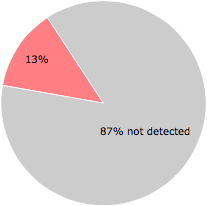What is cpcacdrv.sys?
cpcacdrv.sys is part of ChrisPC Anonymous Connection Driver WFP and developed by Chris P.C. srl according to the cpcacdrv.sys version information.
cpcacdrv.sys's description is "ChrisPC Anonymous Connection"
cpcacdrv.sys is digitally signed by Chris P.C. srl.
cpcacdrv.sys is usually located in the 'C:\WINDOWS\system32\drivers\' folder.
Some of the anti-virus scanners at VirusTotal detected cpcacdrv.sys.
If you have additional information about the file, please share it with the FreeFixer users by posting a comment at the bottom of this page.
Vendor and version information [?]
The following is the available information on cpcacdrv.sys:
| Property | Value |
|---|---|
| Product name | ChrisPC Anonymous Connection Driver WFP |
| Company name | Chris P.C. srl |
| File description | ChrisPC Anonymous Connection |
| Internal name | ChrisPC Anonymous Connection |
| Original filename | cpcacdrv.sys |
| Legal copyright | Chris P.C. srl (C) 2015 |
| Product version | 1.00 |
| File version | 1.1478 |
Here's a screenshot of the file properties when displayed by Windows Explorer:
| Product name | ChrisPC Anonymous Connection Driver .. |
| Company name | Chris P.C. srl |
| File description | ChrisPC Anonymous Connection |
| Internal name | ChrisPC Anonymous Connection |
| Original filename | cpcacdrv.sys |
| Legal copyright | Chris P.C. srl (C) 2015 |
| Product version | 1.00 |
| File version | 1.1478 |
Digital signatures [?]
cpcacdrv.sys has a valid digital signature.
| Property | Value |
|---|---|
| Signer name | Chris P.C. srl |
| Certificate issuer name | COMODO Code Signing CA 2 |
| Certificate serial number | 319a47cf0068fdf122c7ac1163a961b8 |
VirusTotal report
9 of the 72 anti-virus programs at VirusTotal detected the cpcacdrv.sys file. That's a 13% detection rate.
Sandbox Report
The following information was gathered by executing the file inside Cuckoo Sandbox.
Summary
ERROR: Failed to execute process.
Generic
[
{
"process_path": "C:\\Windows\\System32\\lsass.exe",
"process_name": "lsass.exe",
"pid": 476,
"summary": {},
"first_seen": 1577029986.34375,
"ppid": 376
}
]Signatures
[
{
"markcount": 1,
"families": [],
"description": "This executable has a PDB path",
"severity": 1,
"marks": [
{
"category": "pdb_path",
"ioc": "J:\\projects\\nfsdk2\\driver_wfp\\Win8\\Win8Release\\x64\\netfilter2.pdb",
"type": "ioc",
"description": null
}
],
"references": [],
"name": "has_pdb"
},
{
"markcount": 1,
"families": [],
"description": "The executable contains unknown PE section names indicative of a packer (could be a false positive)",
"severity": 1,
"marks": [
{
"category": "section",
"ioc": "INIT",
"type": "ioc",
"description": null
}
],
"references": [],
"name": "pe_features"
}
]Yara
The Yara rules did not detect anything in the file.
Network
{
"tls": [],
"udp": [
{
"src": "192.168.56.101",
"dst": "224.0.0.252",
"offset": 826,
"time": 4.14955997467041,
"dport": 5355,
"sport": 53595
},
{
"src": "192.168.56.101",
"dst": "224.0.0.252",
"offset": 1154,
"time": 3.0313968658447266,
"dport": 5355,
"sport": 55314
},
{
"src": "192.168.56.101",
"dst": "239.255.255.250",
"offset": 1482,
"time": 4.1682820320129395,
"dport": 3702,
"sport": 49152
}
],
"dns_servers": [],
"http": [],
"icmp": [],
"smtp": [],
"tcp": [],
"smtp_ex": [],
"mitm": [],
"hosts": [],
"pcap_sha256": "864377a9e1f64cff1ac994fd8ffcde63599c27b99cc3e3bcf093f8609aacf153",
"dns": [],
"http_ex": [],
"domains": [],
"dead_hosts": [],
"sorted_pcap_sha256": "3a96c94dbb956e7b292f81317c09fe84f33d01bcc78ba284709a9e38095b7762",
"irc": [],
"https_ex": []
}cpcacdrv.sys removal instructions
The instructions below shows how to remove cpcacdrv.sys with help from the FreeFixer removal tool. Basically, you install FreeFixer, scan your computer, check the cpcacdrv.sys file for removal, restart your computer and scan it again to verify that cpcacdrv.sys has been successfully removed. Here are the removal instructions in more detail:
- Download and install FreeFixer: http://www.freefixer.com/download.html
- When the scan is finished, locate cpcacdrv.sys in the scan result and tick the checkbox next to the cpcacdrv.sys file. Do not check any other file for removal unless you are 100% sure you want to delete it. Tip: Press CTRL-F to open up FreeFixer's search dialog to quickly locate cpcacdrv.sys in the scan result.



 C:\WINDOWS\system32\drivers\cpcacdrv.sys
C:\WINDOWS\system32\drivers\cpcacdrv.sys 
- Restart your computer.
- Start FreeFixer and scan your computer again. If cpcacdrv.sys still remains in the scan result, proceed with the next step. If cpcacdrv.sys is gone from the scan result you're done.
- If cpcacdrv.sys still remains in the scan result, check its checkbox again in the scan result and click Fix.
- Restart your computer.
- Start FreeFixer and scan your computer again. Verify that cpcacdrv.sys no longer appear in the scan result.
Hashes [?]
| Property | Value |
|---|---|
| MD5 | 7a9312f71d23d2c69a4146e49f4c5c32 |
| SHA256 | 26d768ee00529604f61e4fe8ef36e26431ab7dbaf33744f75b2b7ce0c76cca9e |
What will you do with cpcacdrv.sys?
To help other users, please let us know what you will do with cpcacdrv.sys:
Comments
Please share with the other users what you think about this file. What does this file do? Is it legitimate or something that your computer is better without? Do you know how it was installed on your system? Did you install it yourself or did it come bundled with some other software? Is it running smoothly or do you get some error message? Any information that will help to document this file is welcome. Thank you for your contributions.
I'm reading all new comments so don't hesitate to post a question about the file. If I don't have the answer perhaps another user can help you.
No comments posted yet.


